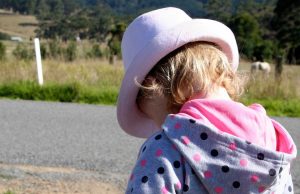Crowds at airports and hometown parades are welcoming athletes. Some were winners, some not. Children’s coping with winning and losing can be a concern. During the Olympics we saw how hard this was for many adults, so imagine how much harder this can be for children.
Although preschool children are not involved in sports and teams, they have had winning and losing, or fair and unfair, experiences. The arrival of little brothers and sisters impacts the amount of time and attention they get. On the other hand, older kids in families get advantages that younger ones might not. Where do kids develop these ideas of fairness?
Surprisingly, animals have ideas of what’s fair or not. When two monkeys are rewarded with pieces of cucumber for a task, they are fine. When one monkey is given cucumber, but the other a grape (which is a sweeter treat) there is quite a different reaction. The monkey given the cucumber becomes very agitated, throwing back the cucumber, slapping the counter, and trying to reach the grapes. This experiment has been repeated with other animals with similar results. Fairness is pretty basic.
Generally, we strive to make events or situations as fair for kids as we can. When winning and losing is involved, we likely try to make it less hurtful. As one Olympic athlete said, “Losing sucks.” So what can we do for kids? We know that there’s no way kids can win all the time.
Children are developing their self-regulation and emotional control. They need us to do more than explain and lecture. We have to show them. In the words of Kenneth Barish, in the article Winning and Losing for Psychology Today, kids learn from the example of what we do, and how we cope. He advises, “When you play with your children, if you play with enough enthusiasm and express some of your own excitement and disappointment, your child will also, in some way, acknowledge these feelings.”
Children are not only watching the game or event, they are also watching us. They have to see, hear, feel, and know it’s okay to lose. It also helps if we can give them the words to talk about their feelings. We get pretty good at reading their body language so can name the emotion for them and suggest strategies. Some kids may need a quiet cuddle, others a fast run around the yard.  Winning and losing is a challenge for adults. Children’s coping with winning and losing will need our example and support. How do you help your child?
Winning and losing is a challenge for adults. Children’s coping with winning and losing will need our example and support. How do you help your child?

